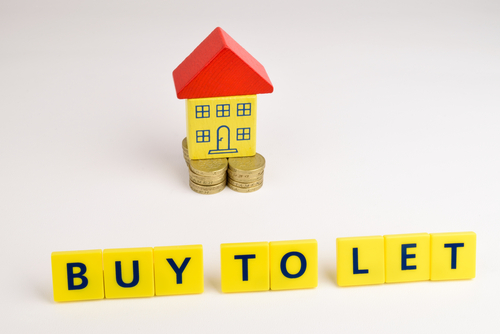It was revealed last week that nearly 25,000 homes in London are being left unoccupied, according to the most recent government data.
At Mayor’s Question Time last Thursday, Labour’s London Assembly Housing Spokesperson, Tom Copley AM, asked the Mayor of London, Sadiq Khan, what is driving the increase in empty homes and what City Hall might be able to do to help bring them back into use.
Copley said boroughs were trying to tackle the problem but ‘desperately need a helping hand from the government’.
The most recent figures from the Ministry of Housing, Communities and Local Government (MHCLG) show that, as of October 2019, there were 24,677 empty homes across London.
The Mayor of London has sought to use his City Hall powers to address this issue by calling for an increase in council tax premiums targeted at vacant homes and clamping down on ‘buy to leave’ property investments through his ‘First Dibs for Londoners’ housing policy.
At present, local authorities possess some powers to tackle the number of long-term vacant properties. This includes the ability to charge council tax premiums, implement Compulsory Purchase Orders and enact Empty Dwelling Management Orders.
Back when he was Mayor of London, in 2014, Boris Johnson called for a change in the law that would allow local authorities to introduce a tenfold increase in council tax charges on properties left empty for more than 12 months.
From April this year, the government will allow councils to charge a premium on council tax of up to 200%, but only for homes left empty for longer than five years.
“As Mayor of London, Boris Johnson was vocal in his support of much stronger measures to get to grips with this issue,” Copley said. “Now that he has his hands on the necessary levers of power, he must restore government funding and devolve much greater powers to local authorities specifically aimed at targeting empty homes.”
Top tips for investing in empty property
Investing in empty homes – which are often empty for a number of reasons, ranging from buy-to-leave and property being inherited to people with ordinary financial concerns who can’t sell or let a home they own but don’t use – is not always straightforward, but you could potentially bag a bargain if you’re sensible and do your research.
However, with empty homes having no residents or tenants, they may require extra remedial work or refurbishment to bring them back up to scratch – especially if you are looking to let it out.
Investors may also need to employ the services of a broker who can find a lender willing to lend on an empty home – which understandably comes with some risks.
Additionally, investors need to carry out research – to find relevant empty homes, preferably in areas with high tenant or buyer demand – and due diligence on the empty home they are purchasing to ensure it is a sound investment.
Estate agents, local councils and even neighbours could all help you to identify empty properties, while auctions – both online and physical – could be another means through which to acquire.
Many local councils have schemes to bring empty properties back into use, so may be glad of the enquiries.
Some councils even offer interest-free loans to help refurbish or convert empty homes into good-quality rental accommodation.
Cash buyers generally have an advantage when it comes to empty properties, but those looking to get a mortgage have lots of options available, too.
A standard mortgage will be an option for a home that has seen better days but is habitable, and only requires minor improvements, whereas a property deemed unhabitable may need the help of a mortgage broker to find a specialist lender who will be willing to lend to you. A stage-payment mortgage will typically work best in this instance.
To find out more about investing in empty properties, this moneywise article explains everything in great detail.
We previously analysed separate research by HomeProtect, which said that an astonishing £10.7 billion worth of properties are sitting empty in London, and asked whether investors should be considering these unoccupied homes in the capital as their next investment opportunity.








.png)










Join the conversation
Jump to latest comment and add your reply
Now why would someone leave a house empty when they could be renting it out? Hmmm, let's see....
1. S24 (disallowing of finance costs)
2. Bad tenants often supported by the so-called charity by name of Shelter
3. Premium of 8% CGT when selling property
4. Banning of letting agent fees
5. Halving of lettings relief
6. Prospective banning of ‘No DSS’ wording in adverts
7. Promised banning of S21 notice
8. Growing trend of councils charging hefty licence fees per property
9. Changes to HMO regs including minimum room sizes
10. Right to rent checks (now shown to be discriminatory and there is no guidance on how to deal with EU immigrants)
11. Benefit tenants migrated to UC causing lengthy delays in rent payments and often substantial arrears
12. Deregulation Act
13. Scrapping of Wear & Tear allowance
14. Introduction of EPC minimum requirements (even on HMOs) which can be difficult to meet with older properties
15. Unfit for human habitation legislation
16. CO detectors must be fitted
17. 100%+ council tax on properties being refurbished between tenancies. Not even the 25% single person discount
18. Substantial increases in court costs for use of S8, thus making S21 more popular
19. Membership of compulsory redress scheme for agents (and most likely for landlords soon)
20. Limit on amount of deposit we’re allowed to take
21. Rogue landlord database
22. Proposed 3 year minimum tenancies though not sure what the value of this would be with the abolition of S21
23. Some councils now charging council tax on HMO rooms
John McKay,
Spot on 👏🏻👏🏻
Labour has always been against the privately rented sector landlords, this is an additional power being given to London councils who already harass PRS landlords including threatening with CPO.
Under Labour led councils, along with all the reasons listed by yourself, unfortunately it’s another opportunity for Govt. Housing departments to Home grab legally from people who work hard to save & buy an additional house to help someone else get a roof over their head
It’s another stealth Home/Land grab from multiple home owners (accidental or by hard work) using a legal method.
Let’s wait and see when London’s Labour Mayor will give powers to tax people living with lodgers-making London streets filled/littered with more homeless people including homeowners having lost homes to Council’s CPO!
Unless there is an immediate radical change to support, encourage and provide tax breaks to PRS landlords-homes will remain empty UK wide-not just in London.
Please login to comment